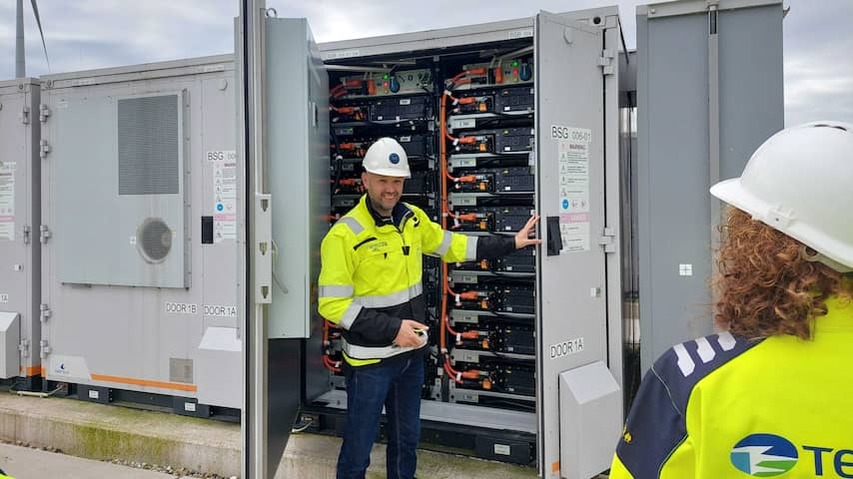
Despite the congestion on the power grid, high-voltage grid operator Tennet has found a way to enable many new connections. Battery Parks and Other Companies That Want to use the Electricity Grid Flexible Can Still Get A Connection Throughhout The Country.
No less than 9 Gigawatts of Space Has Been Found for them, TenneT Announced on Monday. That is Equal to Almost Half of the Total Dutch Peak Demand for Electricity. The Grid Operator Speaks of A “Huge Step” To Solve the Waiting List for a Connection.
To be connected, companies must promise that they will not caus overloading of the grid duration the busiest hours. Tennet Can Ask Companies A Day in Advance Not to Supply or Consume Power At Those Times. Such a restriction can apply for a maximum of 15 percent of the time in a year. In Exchange for Thesis Conditions, Batteries and Other Flexible Electricity Users Receive A Significant Discount On Their Grid Tariffs.
Large Electricity Consumers Such as Data Centers and Factories of Have No Interest in Such A Flexible Electricity Contract, because they have to operate 24 hours a day. Tennet Therefore Expects That Large Battery Parks in particular Will Make Use Of This Option. They can store excess solar and wind energy and supply it to households and businesses duration peak hours, reducing the need for fossil fuel power plants.
No Extra Space for Households and Small Businesses
Approximately a Quarter of the Space Found has already leg allocated to batteries and hydrogen factories. There are many more applications from battery companies on TenneT’s Waiting List, but it is unclear how realistic all those plans are. Some companies have applied for a grid connection at boxes of locations, but probably do not really because to build so many battery parks.
In The Coming Weeks, TenneT Will Be Talking to Companes to See How Great The Need for Flexible Power Connections is. The Grid Operator Hopes to Have Allocated the available Space Before the Summer.
Earlier, TenneT Estimated That Approximately 5 to 6 Gigawatts of Batteries Will Be “Economically Viable” in 2030. They can Capture the Power from Many Millions of Solar Panels On A Sunny Afternoon. “We are convinced that this large-scale storage will now really come on the grid,” Says Maarten Abbenhuis, Operational Director of Tennet. “That is good news. We really need that flexibility.”
Currently, there is Already Slightly More than 500 Megawatts of Large-Scale Battery Systems in the Netherlands. Together They have a Greater Capacity Than The Nuclear Power Plant in Borssele. The Batteries Are Now Mainly Used To Balance The Power Grid In The Short Term.
The Space That Tennet Has Found is only available to Large Energy Consumers with A Direct Connection to the High-Voltage Grid. Most companies and all households in the Netherlands are connected to the grids of regional grid operators. The Long Waiting Lists Will Remain Unchanged There For The Time Being, Until Expansions of the Grid Create Space.
Expansion of the Electricity Grid Continues
Tennet Emphasizes That Work Must Continue Throughhout The Netherlands to Reinforce the Electricity Grid. This Remains Necessary to Absorb the Growing Electricity Demand of the Netherlands.
In The Short Term, the Space Found does not result in Savings on the Billions of Investments in the Power Grid, but in the Longer Term, the Large-Scale Use of Batteries and Other Flexible Electricity Users Can Lead To Savings, To Abbenhuis. “The more flexible we advance the energy transition, the more efficiently we can invest,” he says.